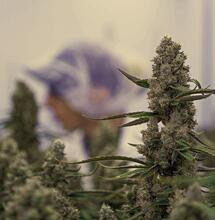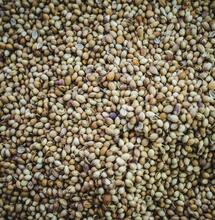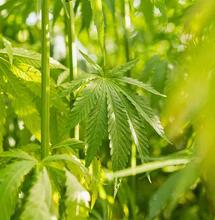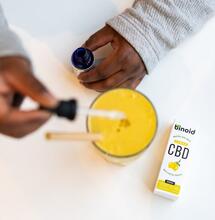The CBN market is waking up!

The popularity of the minor cannabinoid CBN is growing. Similarly to CBD, CBN can help with sleep quality, pain relief and anti-inflammation. CBN is far more powerful than CBD in terms of its relaxant properties. CBN also has mild psychoactive effects, but the high you experience from a CBN product is not as intense as the high you'd feel from THC.
.
According to data analytics, sales of edible products containing CBN stand at more than $65 million in the past 12 months in California, Colorado, Nevada and Oregon. The trend is on the rise, too, with more brands entering those markets weekly.
Kiva's Camino Midnight 5:1 gummies made up of one part CBN to 5 parts THC has been the top-selling edible product in California for the past six months. CBN is being touted as a great sleep aid thanks to its relaxing qualities. Kiva's Midnight gummies offer a calming combination of CBN, relaxing terpenes, chamomile, and lavender extracts to promote restful sleep. The belief is that CBN's sedative effects are amplified when paired with THC.
CBN was first discovered in the 1930s/40s and was found to provide a mild psychotropic effect. However, not much has been done with it until recently because CBN is hard to make. CBN is not created or contained in fresh cannabis plants. Instead, it is produced when cannabis or hemp plants are exposed to air and sunlight for long periods.
An oxidation process turns THC into CBN as the cannabis dries out and ages. Up until recently, the time involved to produce consistent CBN naturally hasn't been practical.
Market data research estimated the value of the U.S. sleep-aid market at around $31 billion in 2020. CBN is very similar to the sleep aid melatonin, which is expected to reach sales of $2.4 billion by 2025.
With these figures, cannabis companies have had a great incentive to develop an extraction process that speeds up the natural oxidation process of CBN. The hope is that CBN will eventually be classified as a dietary ingredient similarly to melatonin. Approval is already being sought from the FDA for the change.
Both cannabis and hemp can be used to make CBN. Whilst cannabis is a better choice as it contains more THC. Currently, you can only buy cannabis-derived CBN products in states where recreational marijuana is legal. The complications of the regulatory market make hemp-derived CBN a better option for manufacturers who want to sell their product legally across all 50 states.
One such company is the Californian brand Sandlands. With two Hemp-derived CBN sleep products on the market, consumers won't see CBN mentioned on their packaging or product marketing.
This is undoubtedly an intentional decision designed to navigate the tricky advertising rules on platforms such as Facebook, Instagram and Google involving the discussion of cannabis, hemp and their derivatives. Ignoring the "CBN factor" is also helping the company succeed in other markets and with influential retailers such as Amazon, who share similar concerns about labelling and regulations.
However, a spokesperson for Sandlands stated that the decision was simply because they believe people want a product that works regardless of what's in it. Do they care that it contains CBN? There is no THC in the product, and it is entirely safe, so they argue that there is no reason to hype up the presence of CBN as an ingredient.
Increased demand for legal cannabis shows a clear consumer interest in the effects of CBN. As awareness of its positive physiological benefits continues to grow, significant competition in the open market with CBD is expected as consumers gravitate toward CBN. Even a modest estimate would point toward a multi-hundred million dollar market emerging around CBN shortly.







